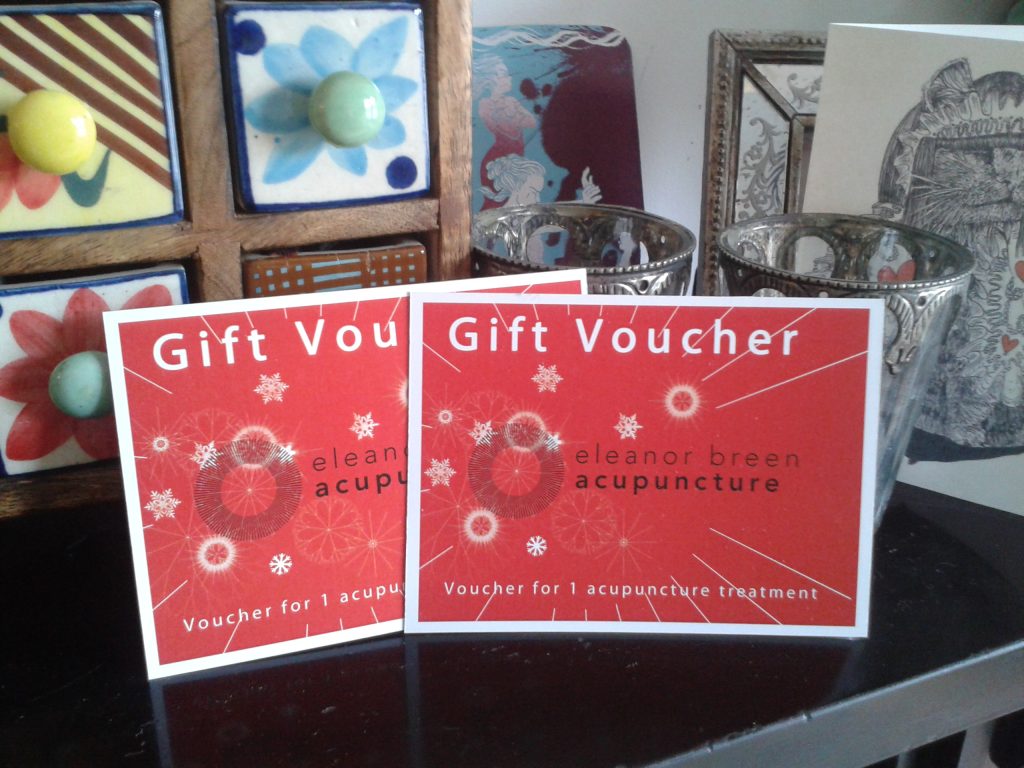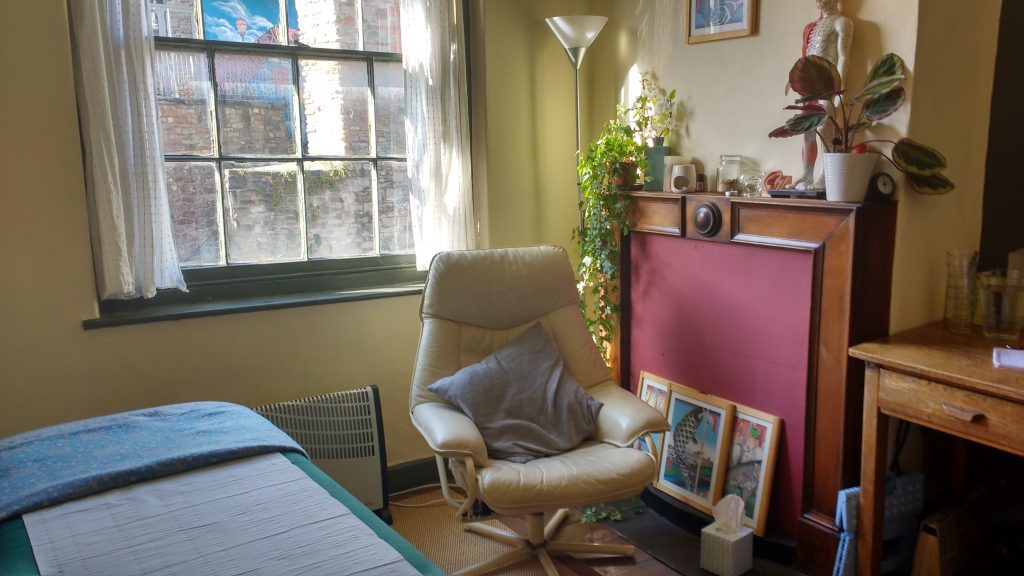Say Goodbye to Back Pain with Acupuncture

Are you one of the millions of people who suffer with chronic back pain? If you are, it’s likely you’ve reached the end of the road with your GP, been given painkillers and made to believe you just have to live with it.
Globally back pain is the single leading cause of disability, with 1 million people signed off work with the condition in the UK. Back pain reduces mobility and wellbeing and causes other health issues to arise
Whether you are suffering with lower back pain, sciatica and buttock pain, or upper back and neck pain; acupuncture can be incredibly helpful.
Acupuncture helps back pain by releasing trigger points in muscles, loosening tension while reducing inflammation in the joints of the spine. Both of these will also relieve pressure on any affected nerves to reduce sciatic pain.
There is a lot of good research and evidence for the effectiveness of acupuncture for back pain. A summary can be found here: https://acupuncture.org.uk/fact-sheets/back-pain-fact-sheet/
If you’d like a chat to find out more, please get in touch
Tags: acupuncture, Back pain, Bristol, Chronic pain, Neck pain, Pain, Sciatica
Acupuncture Christmas Gift Vouchers

Christmas Gift Vouchers
Looking to give a loved one a more meaningful gift?
You could start them on the journey to better health and wellbeing with an acupuncture gift voucher.
Buy them the gift of wellness.
£45 for one treatment voucher. or £180 for a course of 5 treatments.
vouchers valid for 1 year
Just email me to arrange payment by bank transfer and i will post the voucher
Merry Christmas
Tags: acupuncture, christmas, gift, gift voucher, treatment, wellness
Acupuncture for Stress

Modern life is stressful; whether it’s work, kids, relationships, money worries, or just not having enough time. In fact, stress now seems an inevitable part of life for most of us.
But constant prolonged stress can have significant impacts on your body. It may lead to higher risk of heart problems, weakened immune system, digestive problems, trouble sleeping, and mental health issues like anxiety and depression.
How can acupuncture help?
Acupuncture can’t take away the causes of stress in your life, but it can help your body respond better, and help you remain calm in the storm.
Evidence shows that Acupuncture can influence the parasympathetic nervous system via the release of neurotransmitters that regulate the body’s stress response. Acupuncture also helps to release endorphins, which can create a sense of well-being and relaxation.
Having acupuncture through stressful periods in your life could help you feel calmer and more resilient. Why not give me a call to find out if acupuncture could help you.
Tags: acupuncture, calm, stress
New acupuncture clinic in Kingswood

After 12 years of working in Bristol City Centre, I have now opened a new clinic in Kingswood to be closer to my family and community.
My clinic is on the beautiful Kingswood Foundation Estate, with great parking and a lovely little cafe. I’m excited to be working in such a lovely place .
For anyone who would like to know more, Acupuncture is a fantastic treatment for a really wide range of issues.
What acupuncture can help with:
- Pain, either from an injury or a chronic pain condition
- Menstrual or menopausal problems
- Stress, and mental/emotional health
- Fertility support
- Headaches/migraines
- Digestive problems
Please get in touch if you would like to know more or to discuss how acupuncture can help you
Tags: acupuncture, fertility, headaches, kingswood, menopause, Pain, stress
Acupuncture for sports and fitness injuries
Anyone who plays sport or exercises regularly has probably experienced muscle pain or even injuries from time to time. Did you know that acupuncture can be a really helpful treatment method for these kinds of issues?
Overuse and injury can create tight knots or bands of muscle fibres known as trigger points that can cause pain and discomfort. Acupuncture releases trigger points to reduce muscle tension and improve flexibility. Acupuncture can also work wonders by reducing inflammation and promoting blood flow.
So, let’s say you’ve got an injury or a pulled hamstring from your last game – acupuncture can help to alleviate the pain, reduce inflammation in the tendons, and promote healing, helping you recover from your injuries more quickly
And, if you’re dealing with chronic muscle pain or an injury that keeps recurring, acupuncture can release problematic muscle tension and strengthen to improve your overall function.
If you’re looking for a natural and effective way to manage your muscle pain or injuries, it may be worth giving acupuncture a try! Get in touch if you’d like to find out more about how it could help you
Tags: acupuncture, football, muscle pain, pulled muscle, sport, sports injury, treatment
Now is the time to start hay fever treatment

Spring is on its way!
But while many people are looking forward to summer, for those that suffer with hay fever, or seasonal rhinitis, it can be a miserable time of year.
But sufferers should know that it doesnt have to be this way! Acupuncture can both relieve the symptoms of hayfever and prevent your immune system over reacting to the pollen in the first place. It can be used successfully during the hay fever season but is most effective as a preventative treatment. It is advised to seek treatment before the hay fever season starts, in early spring, to support the immune system for the coming spring and summer.
Aisling (34) describes her experience of acupuncture:
“I’ve suffered from chronic hay fever since I was 11 years old with some years being so bad that I’m pretty much house bound for days at a time. I’ve tried EVERYTHING… from local honey to steroids with varying degrees of success (and side effects!). I tried acupuncture as a last resort two years ago and it’s genuinely the only thing that has worked. I don’t have to remember to take antihistamines every day, there are no side effects and it’s the most effective treatment that I’ve come across yet.”
Acupuncture focuses on treating “the Root and the Branch.” This means that treatment during the hay fever season will address the immediate symptoms, the itchy eyes, the stuffy nose etc, but more importantly it will focus on treating the cause of your hay fever; addressing why your immune system overreacts.
Acupuncture treatment focuses on treating fundamental imbalances within a person, so regulation of the immune system will be a natural part of most treatment. Because of this, people who come for acupuncture for other reasons can often report an improvement in their hay fever symptoms too. Tom (34) found that this was the case:
“After 5 summer of suffering from Hay fever quite badly I had been having acupuncture throughout winter and spring for other reasons but got to the time of year it would usually start and no symptoms at all – for the last 4/5yrs now!”
For more information and details of scientific research into the use of acupuncture for Hay Fever visit the British Acupuncture Council
Tags: acupuncture, Bristol, hay fever, kingswood, seasonal rhinitis
New Acupuncture Clinic in Kingswood

Some exiting news!
From April I am moving my acupuncture clinic out of the city centre to a new base in Kingswood
I have found a lovely room in The Old School House on The Kingswood Foundation Estate, Britannia Road (https://maps.app.goo.gl/9cogPRfzPQqdE5Ki7)
It’s a lovely site, surrounded by a host of great community organisations, with a great cafe, and free parking!
Working closer to home suits family life and gives me more flexibility. I know it won’t work for all of you, but I know for many of you the CAZ and parking charges have made travelling into the city centre much more difficult, so I hope this may actually be better for some people.
As a transition I will be keeping Mondays at The Urban Fringe Dispensary for another couple of months, until the end of May. But after then I hope to be at Kingswood permanently.
I hope to see some of you there in the future
Tags: acupuncture, clinic, kingswood
My new home

Today I finished moving in to my cosy new room at The Urban Fringe Dispensary. I’m really looking forward to practising acupuncture in such a lovely space.
The Urban Fringe Dispensary is a medical herbalist shop at the top of Colston Street by the Christmas Steps (58 Colston St, BS1 5AZ). I will be here on Tuesdays, Thursdays, and Fridays. I will still be at Queen Charlotte St Osteopaths on Queen Square on Mondays.
Eleanor Breen Acupuncture, Bristol
Tags: acupuncture, Bristol, clinic, urban fringe dispensary
New clinic @ the Urban Fringe Dispensary!

I’m really excited to be moving to a new room at the Urban Fringe Dispensary on Colston Street from next week (see on map).
The Urban Fringe Dispensary is a holistic medical herbalist shop and dispensary and an integrated health clinic. Have a look at what they do here: https://urbanfringe.co.uk/
I’m excited to be working alongside such a fantastic group of therapists, and in such a lovely space. I look forward to seeing you all there in the future.
I will also be keeping my Monday clinic at Queen Charlotte St Osteopaths for anybody that finds that location more convenient
Acupuncture Awareness Week: Acupuncture for Sports Injuries
7-13 March is Acupuncture Awareness Week!
The focus this year is on how acupuncture can help sports injuries. Acupuncture is a fantastic treatment for muscular-skeletal pain and injuries sustained from sport (or any other reason!). I see all kinds of injuries in clinic, they are some of the most common things I treat, and they respond really successfully to treatment.
Olympian Rebecca Addlington is a great fan of acupuncture and uses it to help with injuries and performance. watch the video above to hear her talk about how acupuncture helps her.
To find out more have a look here at my fact sheet on how acupuncture can help sports injuries:
Or please get in touch to find out more about how acupuncture could help your injury
Eleanor Breen Acupuncture, Bristol
Tags: acupuncture, Acupuncture Awareness Week, Bristol, injury, muscular, Pain, sports injury
